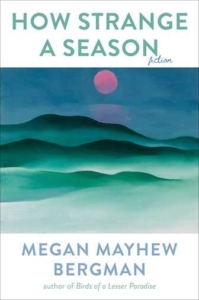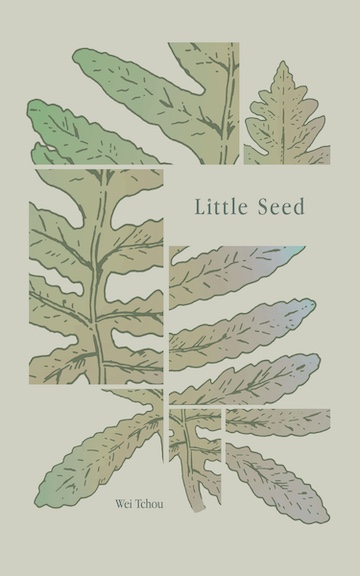Save Yourself
In Megan Mayhew Bergman’s How Strange a Season, spirited women light out on their own
In “Peaches, 1979,” an emblematic story from Megan Mayhew Bergman’s new collection How Strange a Season, a college-educated woman, Darcy, returns home to save her family’s failing orchard, despite the fact that she doesn’t particularly like them. “It was hard to spend time with people she loved but didn’t enjoy when she was tired from work and short on cash,” Bergman writes. After her mother, brother, and sister find fresh ways to disappoint Darcy, she considers simply leaving them to their fates. “Just how wrong would it be to save myself?” Darcy thinks. “And only myself.”

Based on the pattern of Bergman’s narratives, the chances are good that Darcy will soon pack up and leave her family behind. Time and again, Bergman’s protagonists, frustrated with compromise and betrayal and convention, decide to scrap their lives and build them anew, elsewhere. Often these crossroads moments occur when lovers have let them down. As the narrator of the first story, “Workhorse,” puts it, “The man who’d once been the center of my existence had self-destructed and left me wondering who I was and how I would live my life.”
The subtitle of the collection, “Fiction,” is apt: One of the pieces, “Indigo Run,” is a 137-page novella. Set on a South Carolina plantation, it depicts a mother struggling with postpartum depression who cannot breastfeed her newborn. The family hires a wet nurse, Marie, an immigrant from Norway fleeing an unnamed scandal. Marie settles into the estate and, as the mother withdraws into darkness, finds herself pulled into an affair with the husband. Marie knows that it is a mistake (“Here was a man that she could not love — he was not made of the right ingredients”), but she also knows that reason can’t save her. Marie’s “loneliness was big enough to eclipse wisdom; it woke her in the night. It had teeth.”
What comes next for Marie is a twist that distinguishes Bergman’s work. Rather than wallowing in self-castigation, Marie acknowledges her transgression and proceeds headlong into her mistake. “I came to this country to escape shame,” she tells her lover. “I won’t give into it now. We should enjoy pleasure where we find it.”
 Other characters have more prolonged battles with conscience. In “Workhorse,” an aging businessman retires to Sardinia and adopts an ailing mule as a household pet. His brother interprets the gesture as “a strange way to atone for his life of greed.” In another story, the scion of a family of former North Carolina plantation owners lashes himself to a pier when a tropical storm rolls in, a form of self-flagellation to counterbalance the suffering his family inflicted on the people they enslaved.
Other characters have more prolonged battles with conscience. In “Workhorse,” an aging businessman retires to Sardinia and adopts an ailing mule as a household pet. His brother interprets the gesture as “a strange way to atone for his life of greed.” In another story, the scion of a family of former North Carolina plantation owners lashes himself to a pier when a tropical storm rolls in, a form of self-flagellation to counterbalance the suffering his family inflicted on the people they enslaved.
How Strange a Season is enjoyable despite the tortures that Bergman’s characters undergo. The loss and heartache come to fruition when they reach hard-won epiphanies. The realizations may be actionable — as when the narrator of “Heirloom” suddenly accepts that she’s going to leave her boyfriend — or simply sad. In “Inheritance,” a woman who has been bequeathed her grandmother’s Northern California estate learns that her grandmother, whom she views as glamorous and independent, was actually lonely and tawdry. Such insight isn’t comforting, but it enables authentic lives.
Bergman’s stories make clear that tribulations don’t result from bad decisions, but from any decision. Leave your husband or stay in an unfulfilling marriage, pursue a safe career or leap for your dreams, live in the South or in Maine — whatever you choose, disaster will ensue. But, as long as you choose for yourself, you will enjoy the satisfaction of self-determination. The narrator of “A Taste for Lionfish” articulates this point. “The trick was to believe in your choices,” she says. “Once you let the doubt in, it ate you alive.”
Though Bergman’s stories generally trend toward optimism, they reveal that the dark side of independence is vulnerability. Women who seek autonomy become targets, sometimes resulting in trauma that cannot be erased. The narrator of “Wife Days” tells her husband that she’s willing to play the domestic role four days a week “if you leave me alone the other three … I need some days to myself. I need days without rules.” As the story builds, we learn that her depression started when she was assaulted as a teenager. Her maintaining an identity separate from her marriage feels like an assertion of her essential self, one that she won’t allow to be stolen.
Bergman, who grew up in North Carolina and teaches environmental writing at Middlebury College, has a deft touch with natural scenes. “Fog blanketed the ocean,” she writes in “Inheritance.” “There were small pools of rainwater in the sandy soil, as if the ground had been too dry to drink in the storm all at once.” Such scenes remind us that, no matter how bereft we feel, nature offers sufficient solace to tempt us into hope.

Sean Kinch grew up in Austin and attended Stanford. He earned a Ph.D. from the University of Texas. He now teaches English at Montgomery Bell Academy in Nashville.


